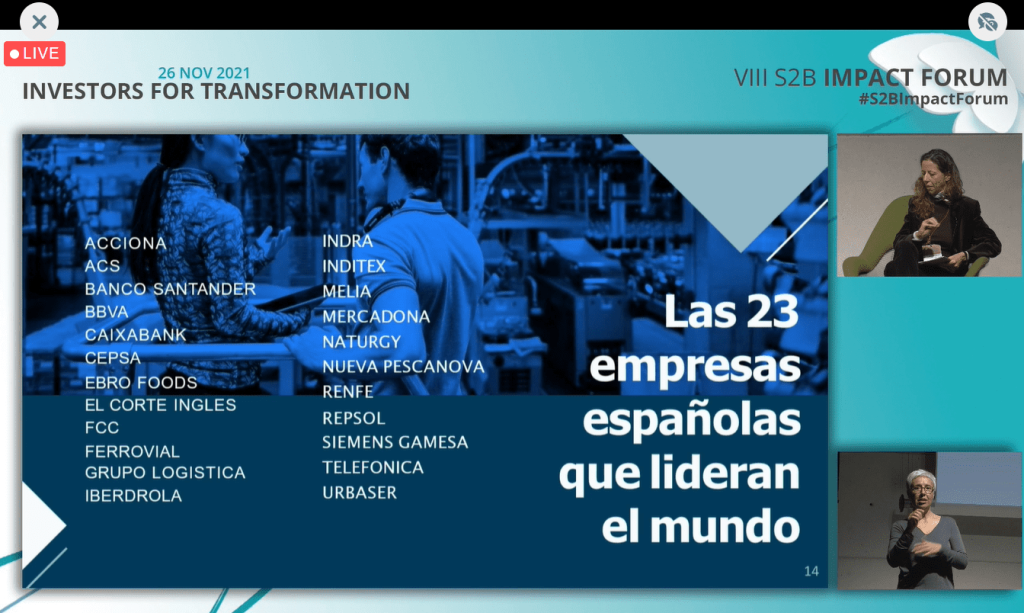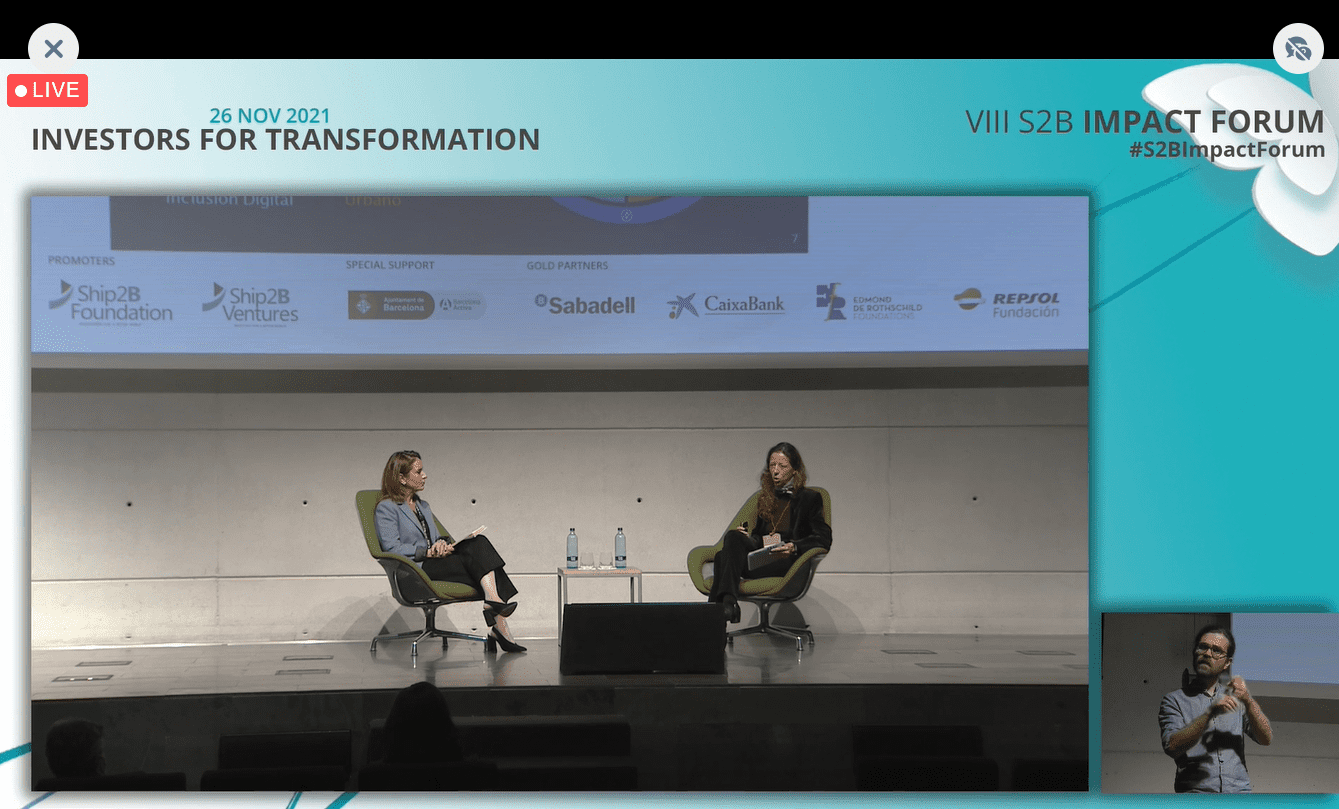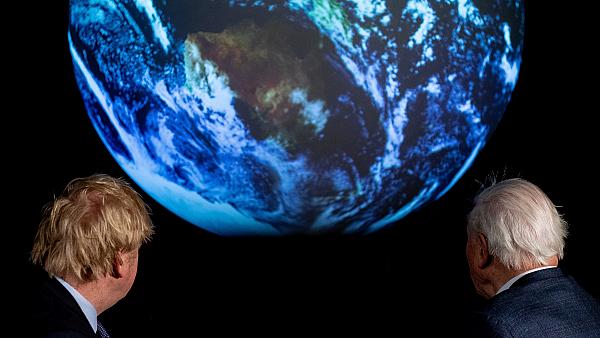Whether we like it or not, our company influences and contributes positively (or negatively) to a better world. Whether we like it or not, we may be singled out to join a club that we have not chosen to join for the justified or unjustified reason that our company is considered a leader and/or exemplary for others for various reasons, based on turnover or number of employees, perhaps because of the sector in which we operate or the community we serve, our type of product or customer base or perhaps because of the important influence of our brand...
However we do it, we companies leave our mark on the world. But which ones leave a footprint for a better world? And what is or how do we define a better world?
A better world is defined by the United Nations in a perhaps simplistic but undoubtedly accurate way, as one in which economic growth is sustainable, responsible and respectful of the planet, contributing to the improvement of people's lives and leaving no one behind.
This objective is set out in the well-known 17 Sustainable Development Goals contained in the United Nations 2030 Agenda, which came into being in 2015. At that time there were 15 years left, which were long for some and short for many, and which today, 9 years down the line, are overwhelmingly short for the great challenges of humanity reflected every day in the news that reach us: from a child dying on the beaches of our coasts, men and women freezing cold on the border of Poland and Belarus, women without the right to work, girls who cannot go to school or parents with their child on their shoulders crossing rivers where they risk their lives in the hope of a better future...
Only business can lead change
Suddenly, and exacerbated by the coronavirus pandemic, surveys show that business is perceived as the leader of change and therefore the hope for achieving these goals.
Neither governments nor NGOs have the resources to invest the 90 billion euros needed to achieve them. And let's be honest, it is not these that have the biggest impact on people and the planet. It is business.
Just as Covid arrived, in 2018 the WBA was created, a non-profit organisation inspired by the values of the United Nations. If society's hope lies in business, it is business that should become the engine of the change and transformation we need. And something had to be done. If they are the engine, where is the fuel to start it up and drive it to arrive in good shape and on time?
The World Benchmarking Alliance (WBA): The Race to the Top
This fuel is the WBA. The WBA is a foundation born in the Netherlands (a country par excellence pioneer and benchmark in sustainability and impact) with the support of the Dutch government and 20 global entities spread around the world willing and united around a mission: to drive the private sector's race towards the SDGs.
The ranking of the 2000 companies that lead the world
The first milestone was not an easy one: choosing the 2000 most influential companies in the world capable of contributing the most to the world's development. Millennium Development Goals, send a letter to their CEOs informing them that they were going to be part of a World Ranking that the whole world, consumers, investors, governments, ordinary citizens, would know the results through a big campaign in the media and social networks worldwide and ask for their collaboration in the process.
The second milestone, the result of an in-depth and rigorous study, was to identify the 7 indices or benchmarks, which respond to the 7 transformational elements that our system needs to be responsible and sustainable. The social transformation (human rights and gender) that affects the 2000 companies, and six other elements or transformations where companies can be rated in 1 or several, depending on the materiality of the impact generated by their business. These are: nature and biodiversity; urban or smart cities; agriculture and nutrition; energy and decarbonisation; digital inclusion and finance.
A third milestone remained, which was not going to be easier because it was the last one. Generating a roadmap that would lead the way by offering tools and support to companies to take action. The journey? Transforming and adjusting their business model to generate measurable and manageable economic, social and environmental value that contributes to one or more development objectives. In short, contributing with innovative solutions so that the generation of goods and services by companies would have a deeper meaning than just producing, selling and consuming them.
You don't choose to be a WBA company
These 2,000 companies were not asked if they wanted to be part of this ranking. So, to motivate them to collaborate and get involved, the WBA provided them with its methodologies, tools and roadmaps to achieve two goals: the 2030 Agenda and a carbon neutral economy. The incentive? To lead the top positions of the World Ranking and be perceived as the best company for a better world.
The 23 Spanish companies that lead the world
Well, of these 2000 companies, 23 are Spanish. The list is made up of Acciona, ACS, CaixaBank, Telefónica, Banco Santander, BBVA, El Corte Inglés, Mercadona, Inditex, Cepsa, Iberdrola, Nueva Pescanova, Indra, Naturgy, Ebro Foods, FCC, Ferrovial, Grupo Logística, Meliá, Renfe, Repsol, Siemens Gamesa and Urbaser.

And all of a sudden, these 23 Spanish companies of different sizes, sectors and market capitalisation.... are now part of the club of companies that lead the world. And they lead the world because the WBA, today constituted as an alliance of more than 250 entities worldwide, has singled them out as the most influential, not to tell them what to do, but to accompany them along the way, offering light and being a guide on the exciting journey of achieving and contributing decisively to the Millennium Goals by creating a world that leaves no one behind.
2023: Publication date of the first World Rankings
The publication of the indices and the transformation effort of the 2000 companies will be made public in the second half of 2023. We have only months to go. Governments, suppliers, investors, employees, consumers and ordinary citizens will have the opportunity to see the World Ranking of the most sustainable companies committed to the common good.
To raise awareness of the WBA project, the Impact Forum - a benchmark event on impact in Spain led by the Foundation Ship2B - organised a session where together with Victoria Márquez-Mees, the WBA, a leading member of the WBA Board of Trustees, unveils the opportunity that the WBA represents for the 23 Spanish companies selected for the Ranking.
Our wish from Transcendent is that Spanish companies lead the first positions of the Ranking. Some companies such as Telefónica have achieved the first position in the Digital Inclusion ranking. As allies and partners of the WBA, we want the 23 Spanish companies to lead the WBA Ranking, thus demonstrating their commitment to sustainability and the SDGs and that many other companies, seeing their example, effort and success, follow their legacy.
Whether we like it or not, our company influences and contributes in a positive way to a better world... this is our purpose and our raison d'être at Transcendent. Help companies to transcend and leave their mark on the society they serve and why not? To lead the World Ranking of the companies most committed to people and the planet.



